Bridging gaps, aligning goals: Day 2 highlights from the Manila Bulletin Sustainability Forum 2024
Uniting efforts for a collective mission to protect the planet
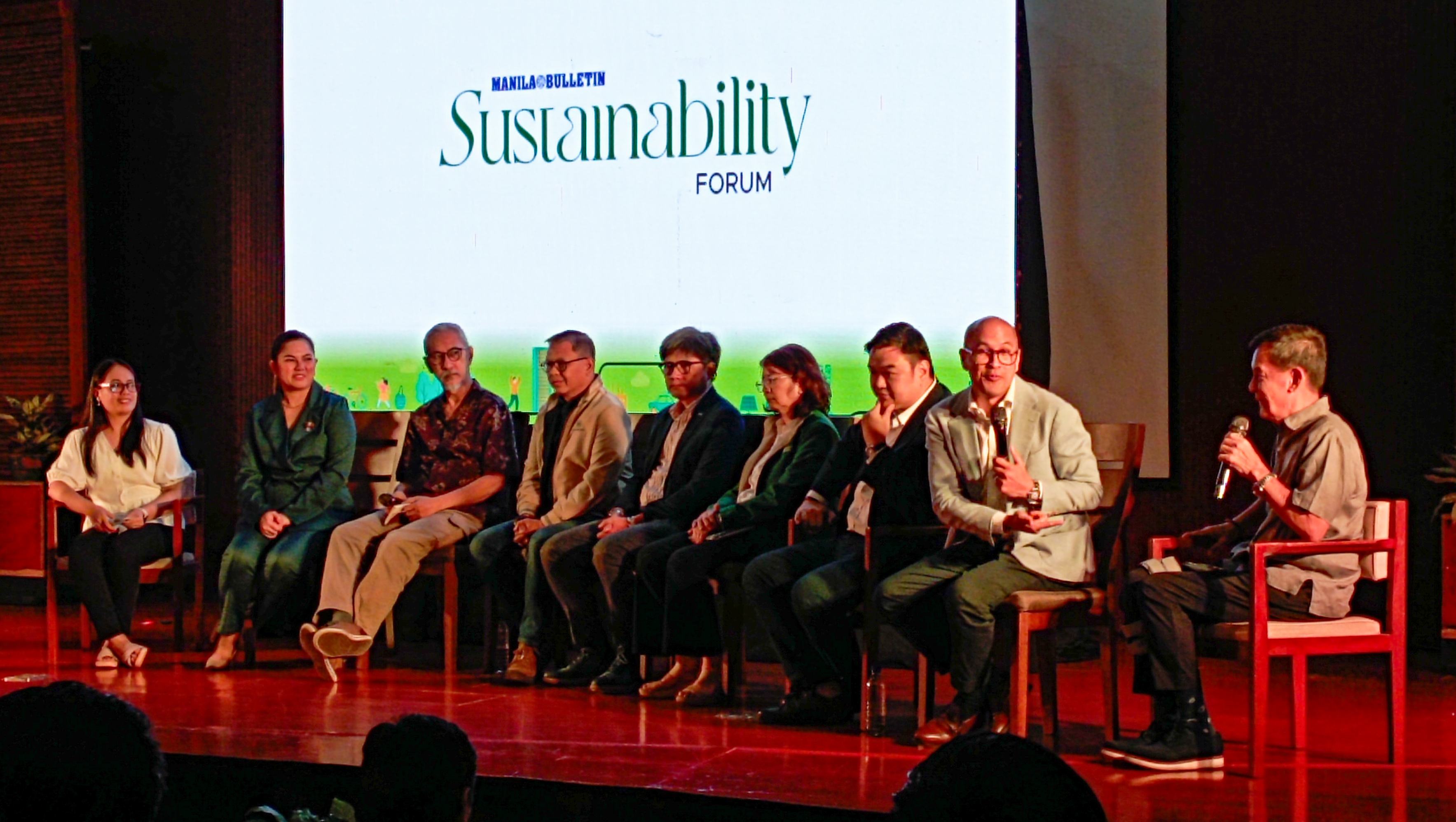
The world is deeply interconnected, with every action creating a ripple effect. Industry leaders shape economies, developers create sustainable spaces, lodging operators provide comfort, energy platforms fuel modern life, and scholars advance sustainable practices.
Though their paths differ, they share a common responsibility to minimize our collective carbon footprint and protect the planet. Whether it's a transformative policy, a green building, or a small energy innovation, every effort contributes to a larger movement—proving that saving the earth is a collective endeavor where everyone plays a part.
This spirit of collaboration and shared responsibility is at the heart of the Manila Bulletin Sustainability Forum 2024. With the theme "Bridging the gap: Connections and perspectives on sustainability," the forum brings together diverse voices—developers, industry leaders, energy providers, and scholars—to explore how interconnected efforts can drive meaningful change.
By fostering dialogue and exchanging ideas, the event bridges divides, aligns strategies, and inspires collective action. It reminds us that sustainability isn’t just a goal but a shared journey, where diverse perspectives unite to build a thriving future for generations to come.
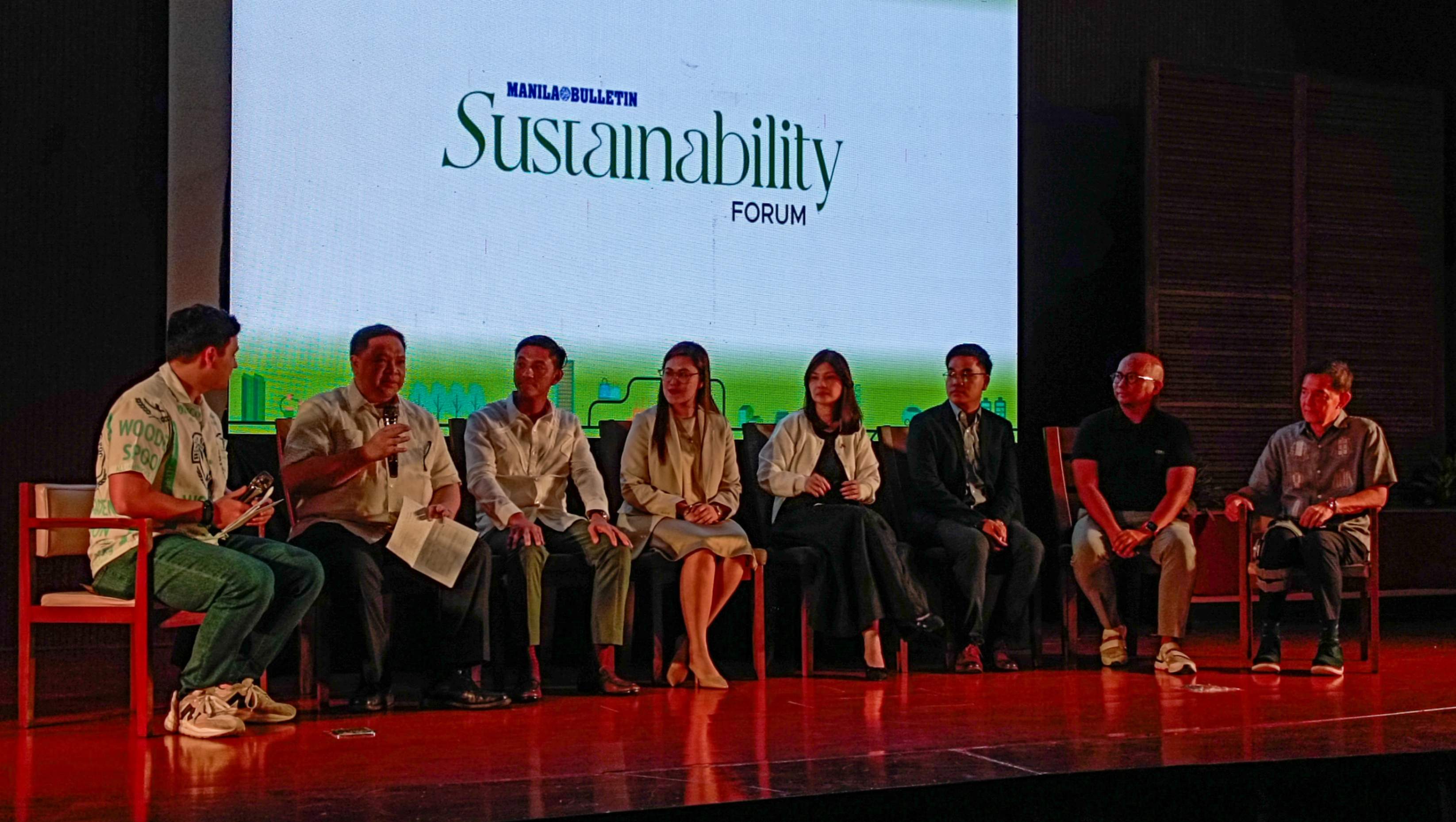
The event continued on its second day at the Institute of Biology Auditorium, University of the Philippines Diliman, featuring talks from prominent leaders in sustainability and development.
Among the speakers were Arch. Conrad Erfe, DURP, UAP, ASEAN Architect, head of planning and design at RLC Residences; Armie Batac, head of sustainability at Megaworld; Hans Sy Jr., president of SM engineering design and development corporation; Hans Lopez-Vito, head of brand experience and brand strategy for Ayala Land’s residential, estates, and corporate group; along with Anna Gonzales, Ayala Land’s corporate sustainability head; Ricardo Floirendo Lagdameo, president of Damosa Land, Inc.; and Tracy San Pablo, project development manager of Filinvest Alabang, Inc.

Additional insights were shared by Faith Quijano, Ascott Cares PH sustainability champion and assistant residence manager at Ascott Bonifacio Global City; Prof. Gil G. Cruz Jr., PhD, assistant professor with the water resources and coastal engineering group at UP Diliman’s institute of civil engineering; and Irene Maranan, senior vice president and head of corporate communications and sustainability at ACEN.
The panel also included distinguished guests such as Asst. Prof. Ma. Brida Lea D. Diola, environmental and energy engineering group, UP institute of civil engineering; Atty. Ephyro Luis Amatong, former SEC Commissioner and director, Sustainable Approaches to Financial, Economic, and Robust (SAFER) growth program, UP law center institute of government and law reform; Assoc. Prof. Nicolo Del Castillo, and Prof. Nappy Navarra, both from the UP college of architecture.
Constructing change
Property developers are increasingly adopting eco-friendly practices, prioritizing energy-efficient designs, renewable energy, and sustainable materials. By integrating green spaces and innovative technologies, they are reducing carbon footprints and enhancing residents' quality of life. This shift toward sustainability plays a key role in protecting the planet for future generations.

The Manila Bulletin Sustainability Forum 2024 opened with Arch. Conrad Erfe of RLC Residences, who emphasized the need for eco-conscious development in response to climate change. “As a real estate developer, our company is committed to ensuring our developments are ecologically sustainable, energy-efficient, and resilient. This commitment, shared by our chairman and CEO, Mr. Lance Gokongwei, extends across all businesses and corporations under the Gokongwei Group,” he said. The property developer incorporates green certifications like EDGE, BERDE, and LEED into its projects.
RLC’s sustainability efforts also include green technologies such as solar panels, water-saving systems, and waste management, which lower costs for homeowners and protect the environment. The company’s goal of achieving one million square meters of net-zero carbon properties by 2031 underscores its commitment to a sustainable future.

Megaworld Corporation is on a path to carbon neutrality by 2035. Since launching its sustainability program in 2020, the company has achieved carbon neutrality for 52 properties and transitioned to renewable energy.
“We hope to conduct our very first audit for Scope 3 emissions within the year. This will serve as the basis for our plans to achieve zero carbon by 2050. Lastly, we recognize that our journey has only started, and it will certainly be long and not easy. There will be a lot of effort in convincing and getting others on our side. Nevertheless, we remain committed because, at Megaworld, we believe that green starts with me, green starts with each of us,” shared Armie Batac.
In addition to operational efforts, the property developer is focusing on sustainability pillars such as zero-carbon roadmaps and stakeholder engagement. A key initiative is its reforestation program, aiming to plant 3.5 million trees by 2034. Despite some unavoidable emissions, the company's approach to energy efficiency, waste reduction, and water reuse highlights its commitment to a greener future.

SM Investments Corporation (SMIC) has championed sustainability since the 1990s, beginning with sewage treatment solutions after a DENR wake-up call. Over the years, it has adopted advanced technologies for monitoring, rainwater treatment facilities, and energy-efficient solutions, showcasing its commitment to balancing urban growth with environmental care.
As Hans Sy, Jr. noted, “Do it once right. Too often, there’s an attitude that says, 'Okay lang yan, pwede na yan' [It’s okay, that’s good enough]. You end up doing it three times, reviewing it three times, when you could have simply done it right. The energy you put into that is energy you could have spent elsewhere. I wish people understood that the pursuit of academic excellence and technical competence is so important. Hindi pwede ang pwede na [Good enough is not enough]. The moment we become complacent is when our sustainability journey ends.”
Programs like SM Waste Free and green innovations, such as LEED-certified malls and flood-resilient designs, highlight SM’s continued leadership in sustainable development.
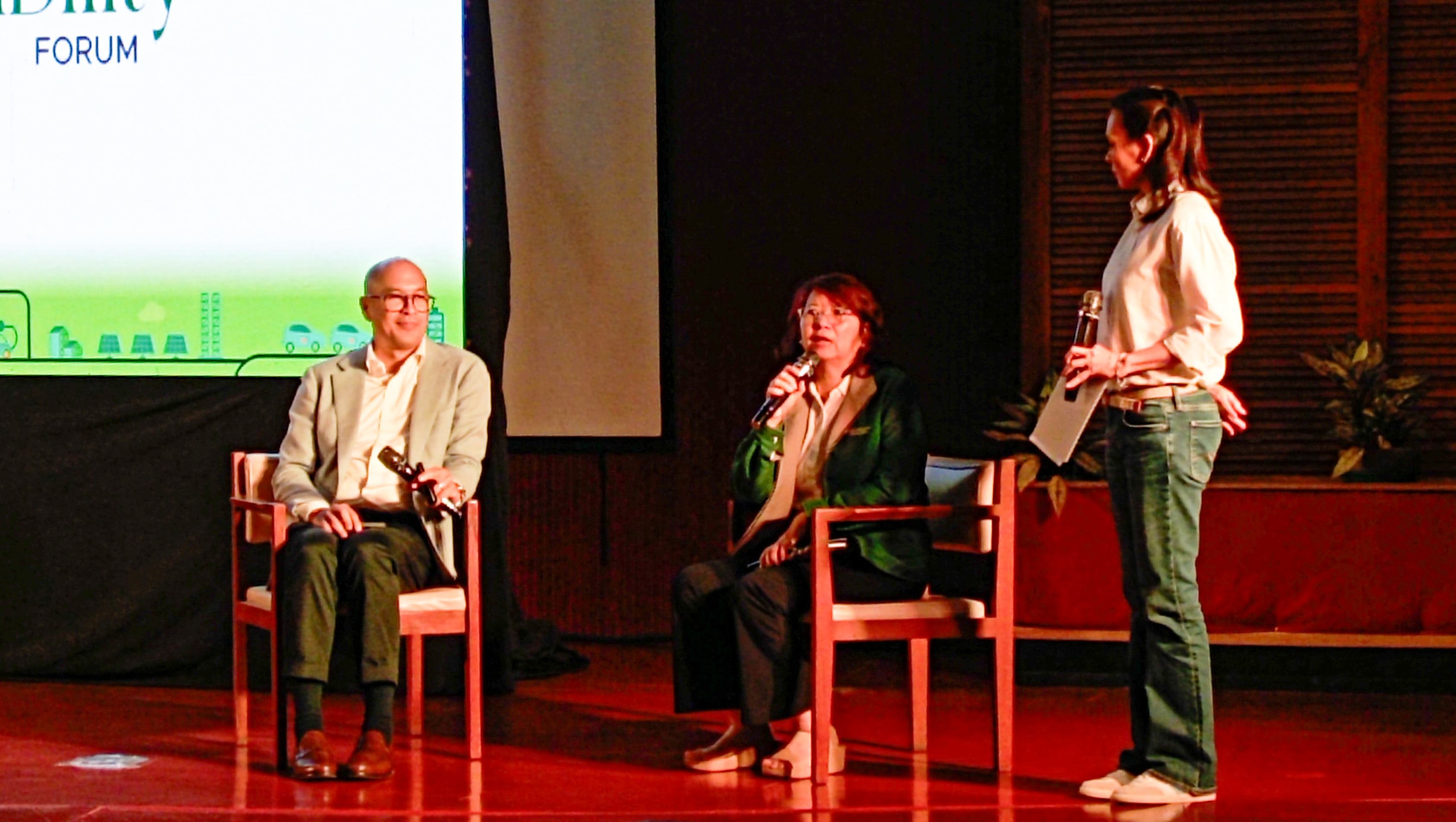
Ayala Land has prioritized sustainability since 2007, setting global benchmarks through rigorous reporting and audits. As Anna Gonzales, Ayala Land corporate sustainability head, explains, "Sustainability really is about assessing your situation, being observant like a scientist, identifying the problems, and looking for ways to solve them."
The company has achieved Science-Based Targets Initiative (SBTi) validation and pioneered sustainability bonds linked to emissions reduction, securing long-term investor confidence.
With a focus on site resilience, transit connectivity, eco-efficiency, and local economic development, the property developer partners with suppliers to use low-emission materials and expand renewable energy. Hans Lopez-Vito highlights how simplifying complex sustainability concepts empowers over 60,000 employees and partners to drive lasting change.
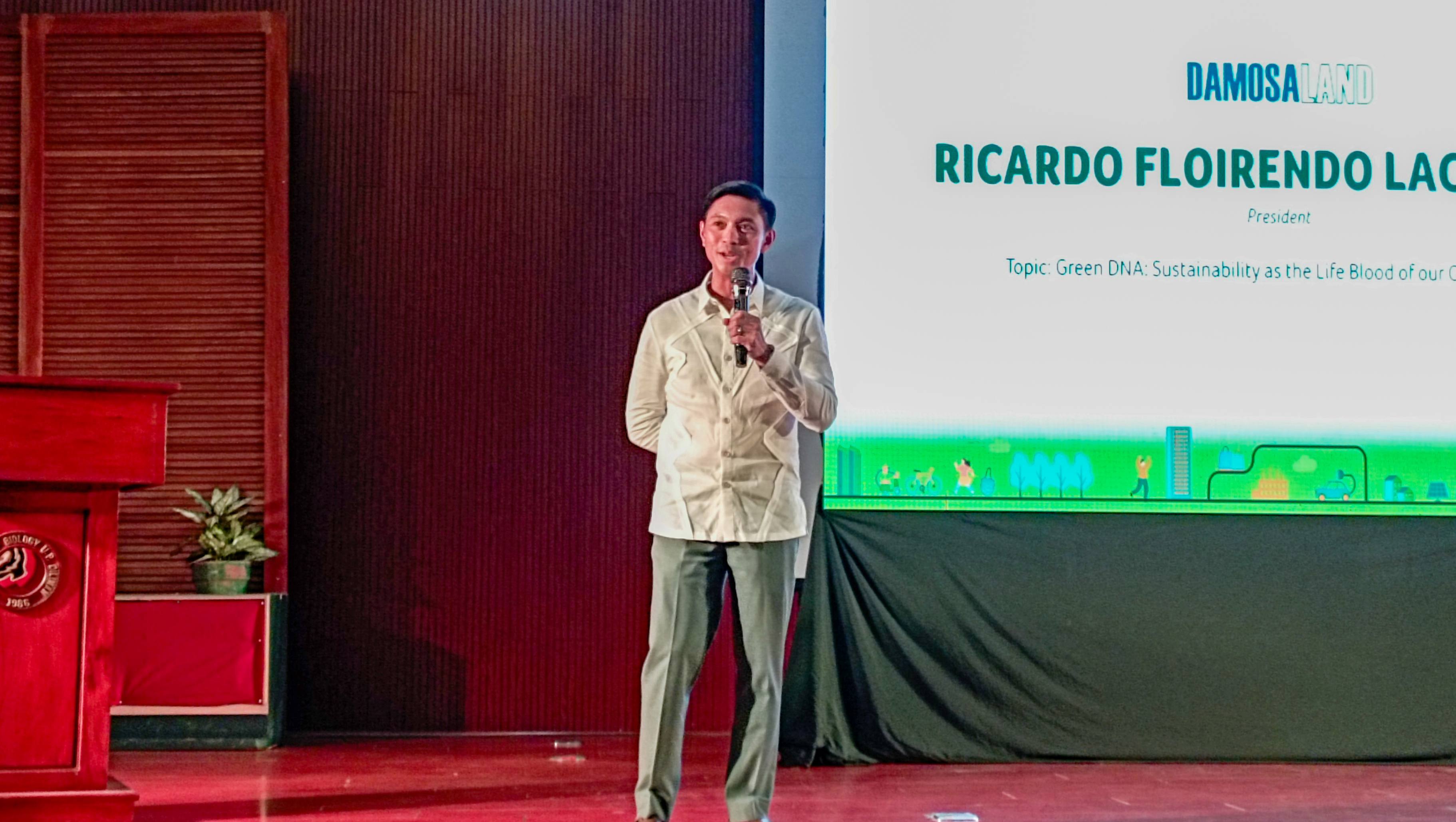
Damosa Land, Mindanao's pioneering sustainable property developer, focuses on eco-friendly construction, energy-efficient buildings, and green residential designs.
Despite real estate being a smaller part of its business, the company integrates sustainability into its projects, highlighted by its first EDGE-certified office building in Mindanao, which features solar panels and energy-saving designs.
The property developer also partners with local factories to source materials, such as rubber used in tennis balls, supporting agriculture while reducing environmental impact.
Additionally, the property developer fosters sustainable communities through initiatives like farm-to-table residential projects and shrimp farming. Its agricultural campus, in partnership with UP Los Baños in Davao, further promotes local talent and environmental education, showing how sustainability can be integrated into real estate and community development.
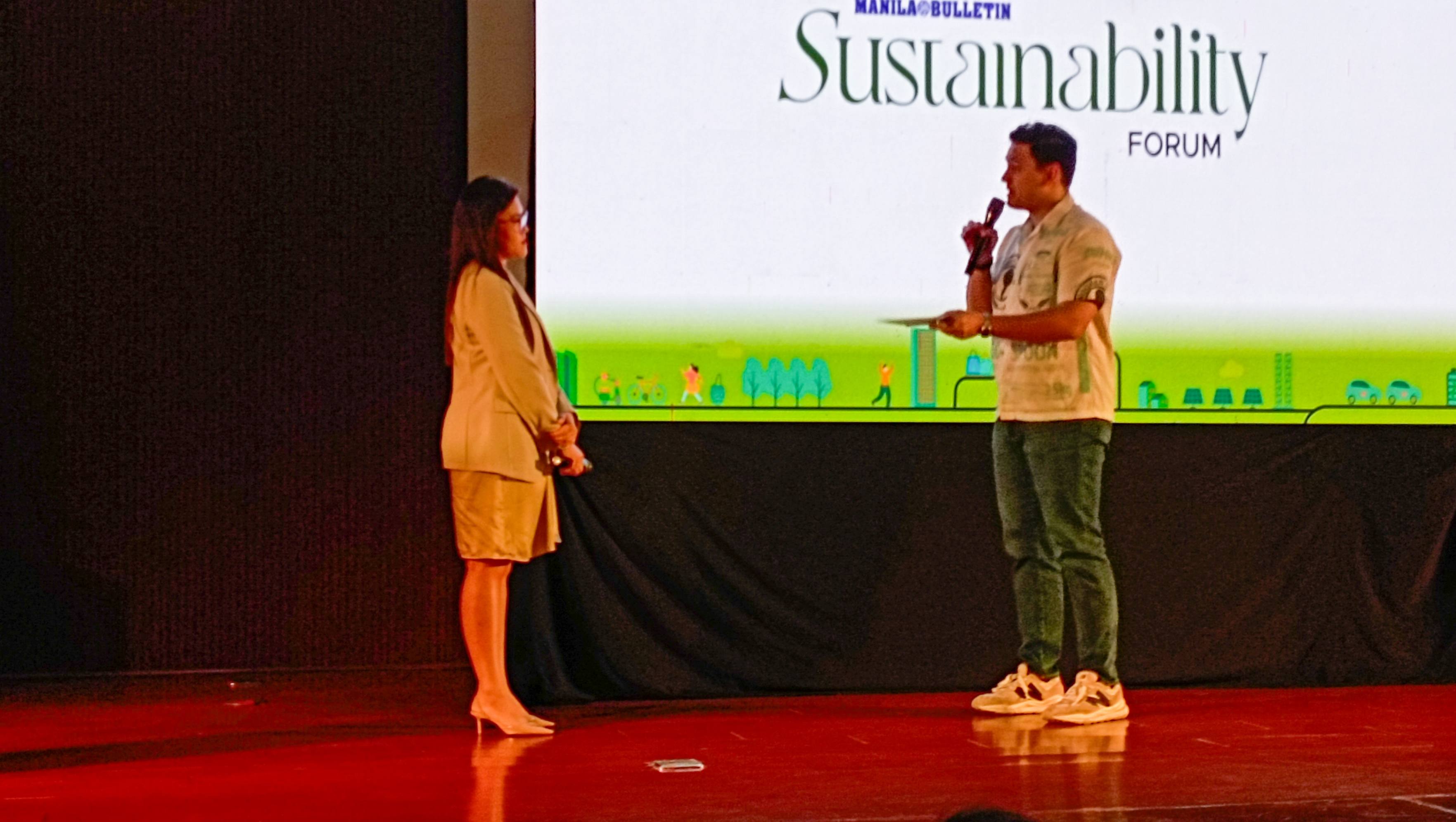
In Filinvest City, sustainability is at the heart of urban development. The city boasts the country’s first LEED Gold-certified green Central Business District (CBD), featuring interconnected parks and pathways designed for walking and biking. Central Park, with its botanical garden and cultural landmark "The Tree," is a focal point for community interaction.
As the city expands, new parks like Creekside Park will further connect green spaces, supporting the property developer's sustainability goals and reinforcing its vision for eco-friendly urban living.
“There's a wealth of knowledge and effort being shared here, and I encourage everyone to take this opportunity to connect and learn. Sustainability is a collective effort, and I hope that the insights shared today, both from Filinvest and from other developers and brands, will inspire each of us to contribute to building a more sustainable and thriving future for our communities,” shared Tracy.
Sustainability all the way
Sustainability is a collective effort, driven not only by developers but also by energy companies, lodging operators, and scholars working toward a greener future.
While developers focus on creating eco-friendly infrastructures, energy providers are shifting to renewable sources to power homes and businesses, lodging operators are embedding sustainable practices into their operations, and scholars are leading research and innovation.
Together, these sectors are crafting a comprehensive approach to sustainability that transcends construction and fosters a more sustainable world for everyone.
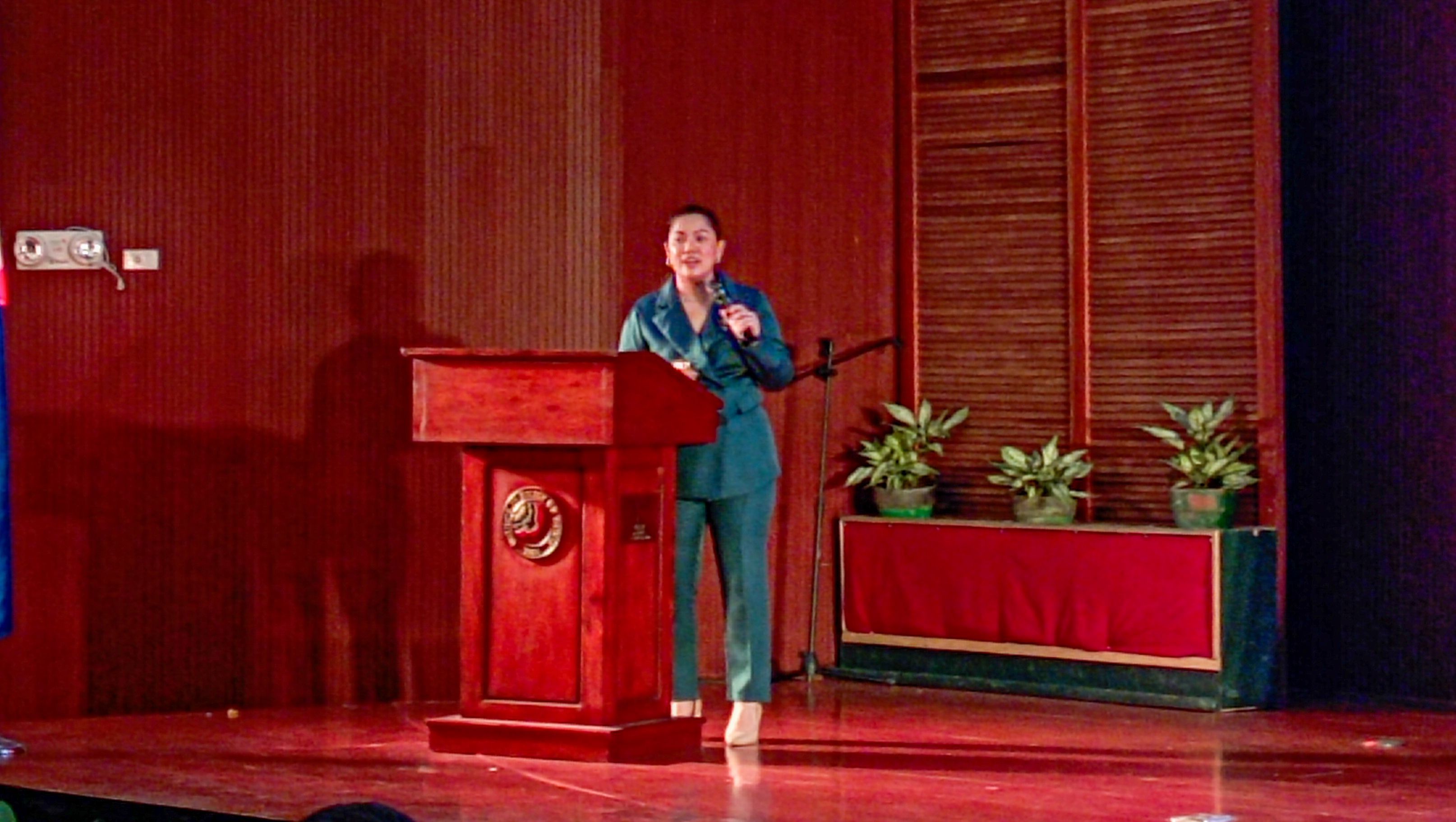
Ascott’s Cares program exemplifies this holistic approach, emphasizing community, alliance, respect, environment, and supply chain sustainability. Through initiatives like cultural events, collaborations with WWF for habitat conservation, and livelihood programs, Ascott empowers communities while championing eco-friendly practices.
The company aims for 100 percent sustainability certification by 2028, supported by Global Sustainable Tourism Council (GSTC) multi-site certifications, solar panels, EV charging stations, and reusable materials.
Efforts like tree planting and waste reduction further underscore its commitment to creating lasting positive change through seemingly small but impactful actions.
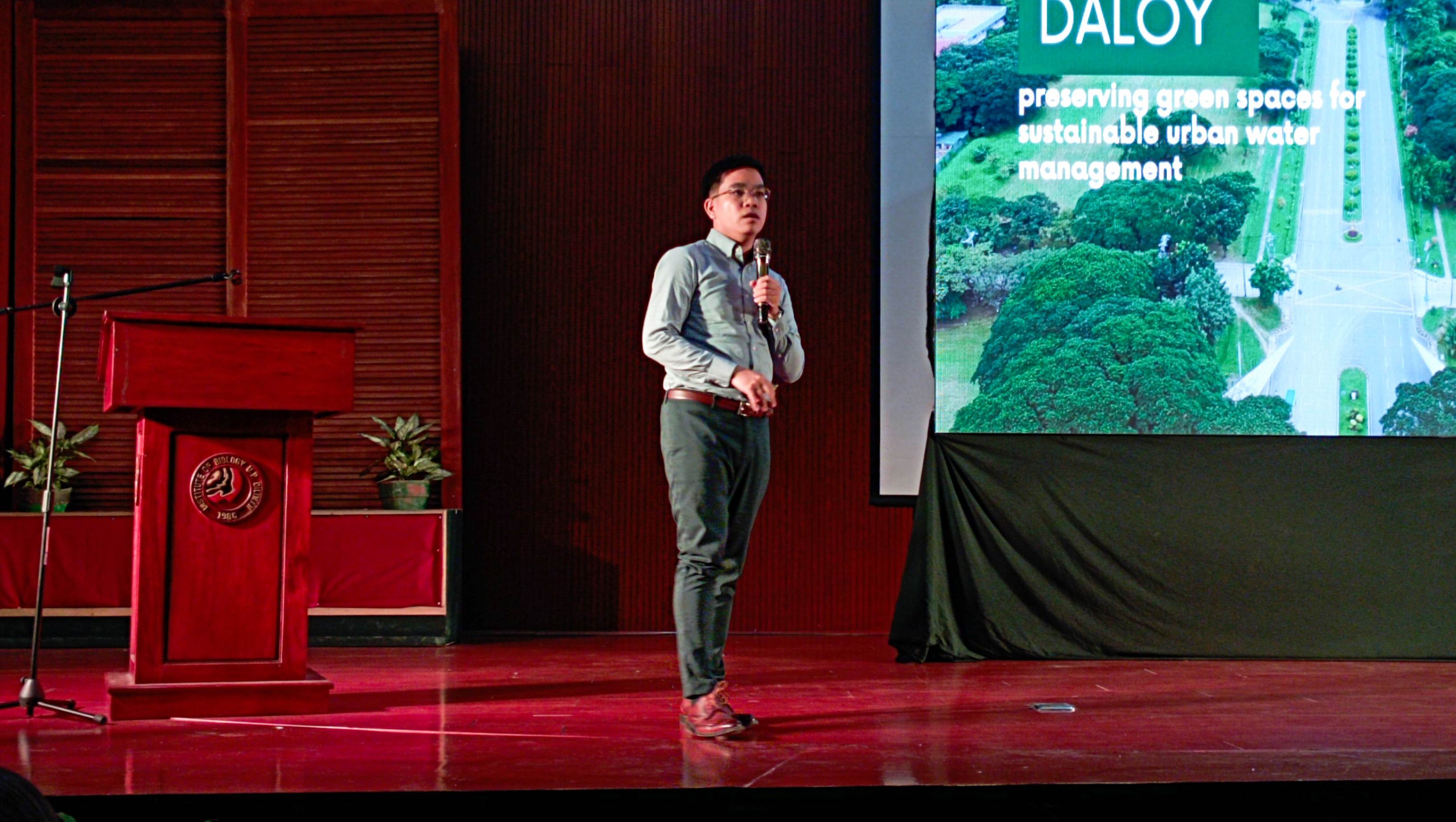
Project Daloy, shared by Prof. Gil G. Cruz Jr., PhD, is another inspiring initiative. Spearheaded by UP Diliman, it addresses urbanization and climate change by preserving green spaces for sustainable water management.
With a "low-impact development" approach, it employs nature-based solutions like green infrastructure and micro-catchments to replicate natural hydrology. This approach slows water flow, spreads it evenly, and enhances infiltration, reducing flood risks while improving water quality.
Transforming the campus into a living laboratory, the program goes beyond flood mitigation by combating urban heat and reducing pollutant runoff. Its vision extends nationwide, inspiring similar efforts through practical guidebooks and adaptable, sustainable practices.
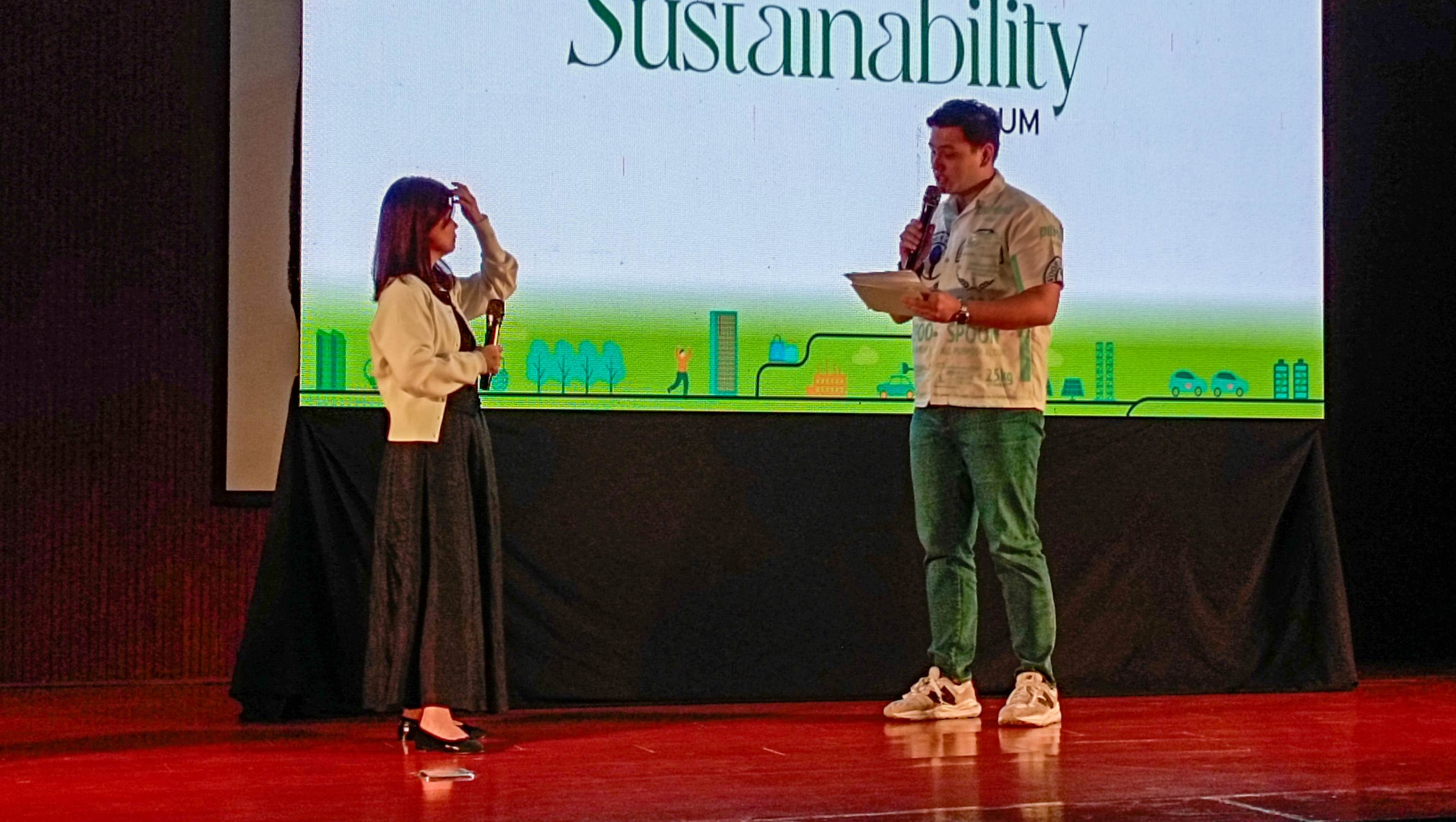
Meanwhile, ACEN, Southeast Asia's first energy company to complete a net zero roadmap, has been transitioning from coal to renewables since 2016.
With a target of 20 gigawatts of renewable energy by 2030, its current portfolio includes 6.8 gigawatts of renewable projects. In 2022, the energy company launched an Energy Transition Mechanism (ETM), retiring a coal plant ahead of schedule and cutting 50 million metric tons of emissions.
The energy company’s sustainability initiatives extend beyond energy production. In Australia, it supports forest protection and agri-voltaics, while in the Philippines, it maintains a carbon sink in Ilocos Norte, offsetting emissions equivalent to removing 82,000 cars from the road.
The Manila Bulletin Sustainability Forum 2024 was held in collaboration with Ayala Land, International Container Terminal Services, Inc., AboitizPower, ACEN, Arthaland, Ayala Land, Damosa Land, Development Bank of the Philippines, Filinvest City, Megaworld, Bank of the Philippine Islands,, Mondelez International, RLC Residences, SM Investments Wilcon Depot, University of the Philippines Diliman, and Citadines Roces.